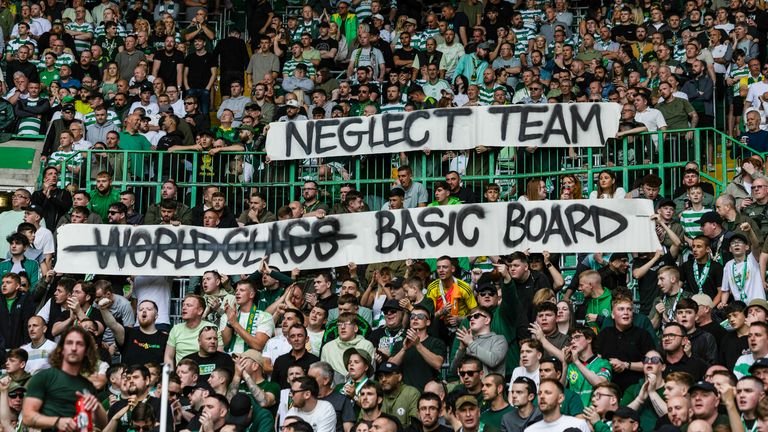A long-running debate over La Liga’s salary rules was reignited during the summer transfer window.
Barcelona were the most high-profile of the many clubs to struggle with the constraints, which are widely seen as the tightest in any top European league.
Essentially, they limit how much teams can spend on wages, with each club’s limit calculated according to their revenue. If a club exceeds that figure, La Liga will not accept any new player registrations — so even if you make a signing, they won’t be eligible to play.
Barca remained over their permitted limit for the 2025-26 season, so they used the small print in La Liga rules to register goalkeeper Joan Garcia (thanks to an injury to Marc-Andre ter Stegen) while board members fronted a €7million (£6m, $8.2m) bank guarantee to get a place for Marcus Rashford following his loan move from Manchester United.
The Athletic covered Barcelona’s creative approach in great detail — but other Spanish clubs were affected, too. On the eve of the new La Liga season back in mid-August, more than 100 players signed by first or second division sides had not yet been registered.
Some teams did have room to spend big. Real Madrid invested around €180million on Trent Alexander-Arnold, Dean Huijsen, Alvaro Carreras and Franco Mastantuono, while Atletico Madrid spent more than €170m on players including United States midfielder Johnny Cardoso and Spain playmaker Alex Baena.
Most clubs had to wheel and deal to try and strengthen their squads. Villarreal and Real Betis invested heavily in new signings, but only after raising significant funds by letting players go that ideally they would have kept.
So, with the transfer window in Spain now closed until January, what do the country’s top-flight clubs actually think about the rules? The Athletic asked executives at every La Liga side. Those who wished to respond asked to remain anonymous to protect relationships.
Are La Liga’s salary rules necessary?
La Liga president Javier Tebas has always defended the rules, which were introduced soon after he became president in 2013. Back then, Spanish clubs collectively owed more than €2billion, including €750million in unpaid taxes to the Spanish government.
“The thing I’m proudest of is making Spanish football sustainable,” Tebas told The Athletic in 2023. “Before, the clubs did not pay their taxes, or their players, or their suppliers. It was shameful for the clubs and their fans. Now La Liga is financially sustainable — clubs only pay in salaries what they can raise in revenue.”

La Liga president Javier Tebas pictured in June (Oscar J. Barroso/Europa Press via Getty Images)
The overwhelming consensus among those who contributed to this article was that salary limit rules are necessary.
“It’s clear that they have managed to reduce non-payments, practically put an end to bankruptcies and have increased the sustainability of most clubs,” a senior source at Valencia said.
Counterparts at Elche added: “Having experienced the era of ‘economic chaos’ and the turmoil that excessive debt caused at some clubs, there is no doubt that we are infinitely better off today than we were back then.”
“They are a necessary evil,” said a senior source from Osasuna. “Football needs rules because experience shows that without them, clubs go into a runaway race in which the market inflates, salaries skyrocket and clubs register losses that compromise their solvency.
“I don’t know whether the rules are good or bad, but they are necessary.”
Another senior figure working at one of Spain’s biggest clubs said: “Twelve years ago, when Tebas came in, clubs were buying players they didn’t pay, there were debts that were never paid, it was a drama and the industry was not sustainable. The economic control of La Liga has given sustainability to the industry: basically, you pay what you can afford. And we set the rules ourselves because they are set by all the clubs.”
A senior source at Alaves said: “The rules are necessary, but you also have to know how to apply them, and above all keep in mind that each rule has a trap and that some clubs also skip it with the famous ‘levers’.”
What are the drawbacks?
Nobody in Spanish football wants to return to the bad old days (in 2011, half of Spain’s clubs in the top two leagues entered bankruptcy proceedings) but some believe the rules restrict teams from investing to really improve their squad’s competitive level, and also force clubs to sell players they want to keep.
The comparison with Premier League spending in this summer transfer window was again stark.
La Liga’s three promoted teams — Levante, Elche and Real Oviedo — spent around €16m between them so far on new players. Sunderland, Leeds and Burnley, meanwhile, invested a combined €300m-plus to upgrade their squads for the Premier League — and are able to offer salaries outside the scope of almost all Spanish clubs. Many argue this comes down to La Liga’s strict financial rules.
“The rules have eliminated situations of excessive debt and unpaid bills,” said an Elche senior source. “The negative is that this control, which often involves a certain degree of austerity, creates situations of competitive disadvantage at international level compared to other countries where such control does not exist or is more lax.”
Among the most worrying trends was the continued flow of promising young Spanish players to other leagues, including 21-year-old centre-back Cristhian Mosquera joining Arsenal from Valencia, 22-year-old winger Yeremy Pino leaving Villarreal for Crystal Palace and 24-year-old left-back Miguel Gutierrez moving to Napoli from Girona.

Cristhian Mosquera playing for Arsenal (Stuart MacFarlane/Arsenal FC via Getty Images)
The biggest drama was at Getafe, who felt they were forced to sell two of their best players. Defender Omar Alderete went to Sunderland for €11.6m the week before the season started. Defensive midfielder and makeshift forward Christantus Uche joined Crystal Palace on deadline day for €17.5m, a deal which was necessary for all of their new signings — Juanmi, Alex Sancris, Kiko Femenia, Abdel Abqar, Javi Munoz and Yvan Neyou — to be registered.
“Financial control is fine, but La Liga can’t be so intolerant as to force us to sell players,” said a high-ranking figure at Getafe. “Players like Omar Alderete have had to go to teams for very little money, which is not right. We are against that.
“We’ve had eight departures and nine signings, we’ve reduced our payroll by €3million and it’s not worth it. They only tell us to sell.”
An Alaves senior source also complained about having to sell players to help bring in funds. “It is impossible for us to achieve our sporting objectives,” they said. “Even if we are in a better place in terms of payments, we have lost squad potential.”
However, one voice at Osasuna pointed out that, for all the debate about whether the rules are damaging teams, Spanish sides continue to enjoy success on the European and international stages.
“Spanish clubs are still successful in European competitions, the national team has been more successful than ever and the youth academies are doing reasonably well. The number of spectators in the stadiums is also higher than ever.”
Meanwhile, a source at Barcelona said a questionable aspect of La Liga’s rules was including the finances of clubs’ other sporting sections (such as basketball or hockey) in their calculations.
Are more clubs struggling this year?
This summer, Sevilla had to prepare for their first game at Athletic Club with just 15 senior players. Celta Vigo, Espanyol, Getafe, Real Sociedad, Betis and Alaves were among the other clubs scrambling to register new signings for their opener.
Did the clubs surveyed think there were more struggles this off-season compared to previous years? The verdict was mixed.
“Without a doubt,” said a Valencia senior source. “Many clubs have had to reduce their squads because of the impact of financial control. Collectively, we must work to find a balance: that the mechanisms designed to ensure the financial stability of clubs are fully compatible with the product not being devalued and losing potential compared to other leagues.”

Sevilla signed 36-year-old forward Alexis Sanchez this summer (Cristina Quicler/AFP via Getty Images)
Other voices argued that clubs that had managed their finances well were not left in the lurch.
“Financial controls are necessary,” said a source at one club participating in the Champions League this term. “The feeling is that clubs that are healthy and work well financially do not have problems in registering players. Not all clubs have problems. Everyone makes do as they can — we’d all like to have great players, but if clubs can’t afford them, they shouldn’t sign them.”
“We haven’t had any problems this year or in previous years,” said the Osasuna senior source. “Normally, if you have problems, it is because in other years you have spent more than you should or your income is not in line with your expenses and, consequently, you have to correct that situation.
“If one year you have competed beyond your means and thus gained an advantage, you can’t complain the next year because you have problems and are at a disadvantage. The rules are for everyone.”
How could the rules be improved?
“The rules have to be flexible,” said the voice at Osasuna. “Many leagues around the world are looking at the Spanish model, so they can’t be so bad. However, if by improving the rules we mean that clubs can spend more, that does not mean improving the rules but increasing revenue. And in that sense, a fairer distribution of TV money would help us all.”
La Liga TV revenues are distributed based on a mix of the team’s final finishing position and the club’s ‘social reach’ — a measure of their fanbases calculated through stadium attendances and TV audiences.
This situation obviously favours the bigger clubs. During the 2023-24 campaign (most recent for which figures are available), Barcelona received €162.5million and Real Madrid received €159.6m, while Atletico Madrid were third on the list with €117.9m, then Sevilla at €72.5m. The bottom three clubs were Almeria €42.6m, Las Palmas €43.1m and Alaves €43.7m.
Meanwhile, the high-ranking Getafe figure suggested closing the transfer market before the season begins would help protect smaller clubs’ interests.
“Otherwise, only the big players will be able to do what they want,” they said. “They take all the best players from Spain, like Sunderland with Alderete, who was our best defender.”
(Top photo: Josep Lago/AFP via Getty Images)








